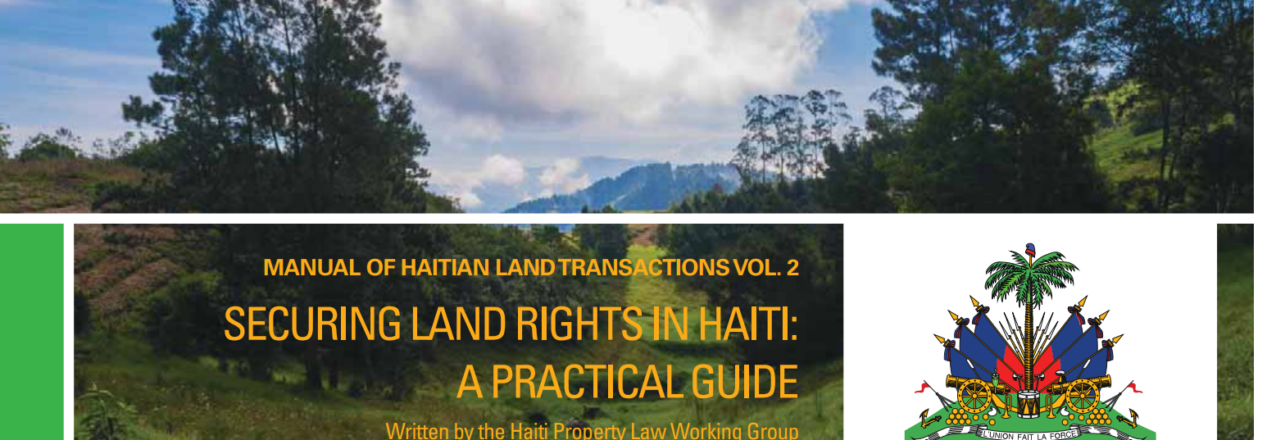Introduction
This manual is the second volume in a series on land tenure in Haiti produced by the Haiti Property Law Working Group or “Working Group.” Lack of transparency in the property sector leads to a sense of insecurity in rural and urban areas and in humanitarian and commercial activities, and undermines investments to modernize agriculture as well as industrial and tourist projects which are drivers for the country’s economic growth.
This manual concentrates on key aspects of law which have become important such as rights and obligations of land owners, families precariously occupying private or public land, expropriation on the basis of public utility, subdivision and condominiums etc.
STRUCTURES AND OBJECTIVES
The main purpose of this manual is to help land owners, state farmers, developers, renters, future owners and NGO’s anticipate and prevent complications resulting from the purchase of properties in order to avoid land conflicts. It will also help users understand some informal and customary practices that often differ from formal procedures. This manual will address certain Haitian practices in the area of land rights and procedures where there is a disconnect between the written law and what people are actually doing. The reader will be informed not only of what is required by the law but what is really happening despite the adoption of certain laws.
Information on the legal and regulatory framework has been illustrated by practical case studies. We want to present to our readers the current laws and procedures on land tenure and thus contribute to a better understanding of land issues. The initiatives of the Haiti Property Law Working Group are certainly not meant to replace measures adopted by the government but only seek to support key features of national policy and thus facilitate dialogue.


